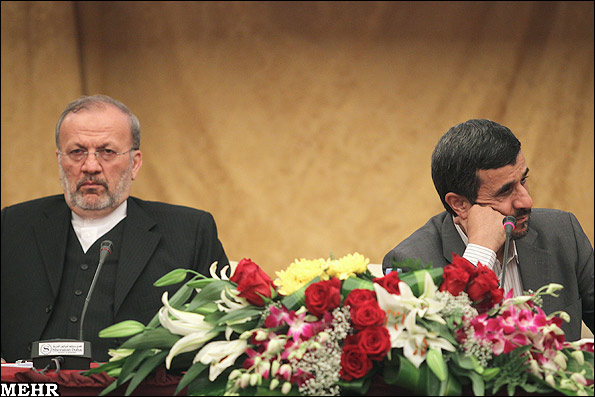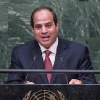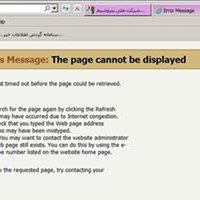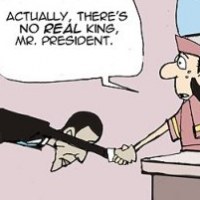![]()
Sun, Dec 19, 2010 | The Meir Amit Intelligence and Terrorism Information Center
Manouchehr Mottaki Ousted In a Power Play After Years of Tensions
President Ahmadinejad announced this week that he was dismissing Foreign Minister Manouchehr Mottaki and appointing Ali-Akbar Salehi as acting foreign minister in his stead. Salehi has been the head of Iran’s Atomic Energy Organization since July 2009. He formerly served as the Iranian representative to the IAEA and the president of Tehran’s Sharif University of Technology. Mottaki was on a visit to Senegal when the announcement was released.
In recent years, Iranian media have occasionally reported strong disagreements between the president and the foreign minister. Already during the previous office term of Ahmadinejad’s government (2005-2009), there were several reports on the president’s intention to remove Mottaki from duty.
Tensions between the two peaked several months ago following Ahmadinejad’s decision to appoint some of his close associates as special envoys on Asian, Middle Eastern, Caspian Sea, and Afghanistan affairs. The decision was thought to express the president’s mistrust of the Mottaki-led Foreign Ministry and perceived as an attempt to limit his powers. Shortly after the appointments, Mottaki strongly criticized Hamid Baqa’i, one of the special envoys appointed by the president, for his remarks on the massacre of the Armenian people in World War I, which resulted in a crisis in Iranian-Turkish relations.
Mottaki’s removal from duty provoked strong reactions in Iran’s political system, with several Majles members criticizing the fact that the president had deemed it appropriate to dismiss the foreign minister at the time of the latter’s official trip to Africa. Alaeddin Boroujerdi, chairman of the Majles National Security and Foreign Policy Committee, expressed astonishment over the president’s announcement, saying he had found out about Mottaki’s dismissal from the media. Another committee member Mohammad Karami-Rad criticized the manner in which the minister had been fired, saying it would have been more fitting if the president had consulted with his advisors prior to making a decision. He also had reservations over the president’s decision to dismiss the foreign minister in the middle of negotiations between Iran and the West on the Iranian nuclear program. Karami-Rad noted that even though Mottaki was not directly involved in the negotiations himself, the president should have chosen a different course of action (Khabar Online, December 13).
Majles member Heshmatollah Falahatpishe also criticized the manner in which the minister had been dismissed, saying that the president’s decision to fire Mottaki during an official visit to Senegal was diplomatically unacceptable. He noted, however, that the minister’s removal from duty would have no effect on the negotiations with the West, since the Supreme National Security Council is the body responsible for conducting the talks (Fararu, December 13).
Hossein Shariatmadari, the editor-in-chief of the conservative daily Keyhan, also criticized the president over Mottaki’s dismissal. While the president does have the legal authority to fire the minister, said Shariatmadari in his editorial, there can be no justification for the president to dismiss a minister while on an official state visit in a foreign country. The manner in which Mottaki was fired is offensive and unjustifiable, particularly when one considers the recent achievements of Iran’s foreign policy on the regional and international scenes and in last week’s negotiations in Geneva. The editor-in-chief of Keyhan wondered what had happened in the last several days that made the president unable to wait patiently for several days or even several hours to dismiss the foreign minister (Keyhan, December 14).
Meanwhile, Iranian media began publishing various opinions on the possible candidates to replace Mottaki. The daily Tehran Emrouz reported that the top candidates to take over the Foreign Ministry were Sa’id Jalili, secretary of the Supreme National Security Council; Mojtaba Samareh Hashemi, the president’s special advisor and one of his closest associates; Hassan Qashqavi, the former Foreign Ministry spokesman and current deputy foreign minister; and Ali-Akbar Salehi (Tehran Emrouz, December 14).
Some media reported that if Salehi was permanently appointed as foreign minister, Mohammad Qannadi, the current deputy chief of the Atomic Energy Organization, could become its new leader. Mohammad Qannadi has been sanctioned under United Nations Security Council Resolution 1803, which orders U.N. members to prevent him from traveling outside Iran.
Although this is not the first time that Ahmadinejad has fired an important member of his cabinet, this latest episode is another move in the behind-the-scenes power struggle between the president and his supporters on the one hand, and Supreme Leader Ayatollah Ali Khamenei and those who support him on the other. Ahmadinejad had already tried to fire Mottaki in 2006 and 2007, but each time was blocked by the Majles and, indirectly, Khamenei. Given this background, the most important implication of Mottaki’s firing is the continuing defiance that Ahmadinejad has demonstrated toward Khamenei and the widening of the rift that has developed between the two men ever since Ahmadinejad was “reelected” last year. Last year, Ahmadinejad tried to replace Mottaki with his close ally Saeed Jalili, Iran’s chief nuclear negotiator and secretary-general of the Supreme National Security Council (SNSC), but was blocked by Khamenei. Jalili has a reputation for not listening to the people with whom he is supposedly negotiating. It is said that each time he meets with the P5+1 team to negotiate over Iran’s nuclear program, he lectures them about all the problems that the West has created for the world. [TehranBureau; Dec 14, 2010]
The appointment of a new foreign minister in Mottaki’s stead requires the approval of the Majles.



 RSS
RSS











Manouchehr Mottaki Ousted In a Power Play After Years of Tensions …: He formerly served as the Irania… http://bit.ly/edqGcG #asematy
Manouchehr Mottaki Ousted In a Power Play After Years of Tensions | #Iran #Ahmadinejad #G5+1 http://j.mp/eYsMnj
RT @CrethiPlethi: Manouchehr Mottaki Ousted In a Power Play After Years of Tensions | #Iran #Ahmadinejad #G5+1 http://j.mp/eYsMnj